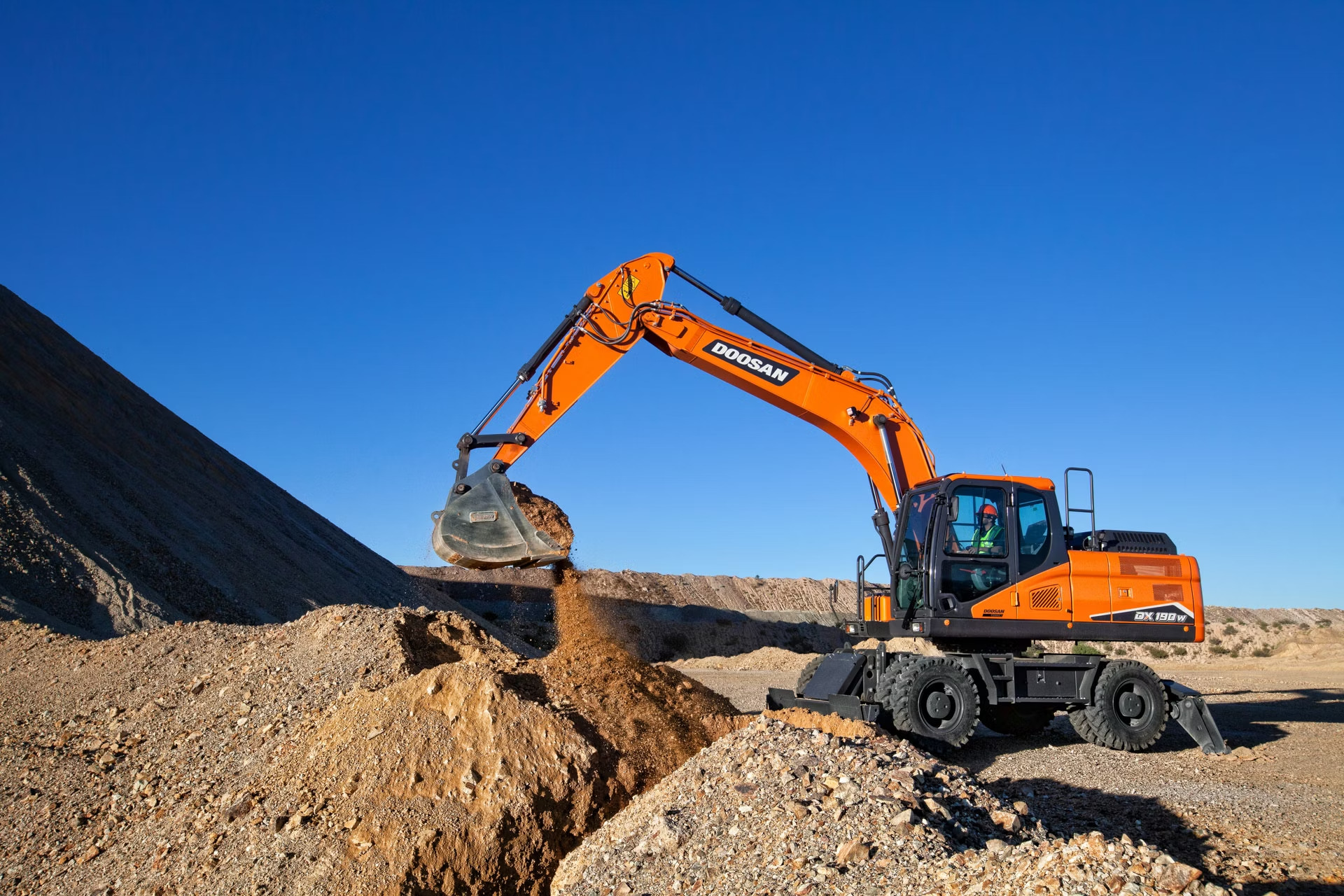Construction sites are the places where you can construct your visions and develop dream structures. However, did you know that these particular places can also be a profitable source? That is correct! Leveraging the power of used equipment, you may transform work sites into wealth-generating opportunities.
One such incredible piece of equipment is a wheel excavator that makes the construction job easier and faster. These mechanical workhorses, which are capable of digging, excavating, and lifting with accuracy and power, are the foundation of almost every second construction operation. When compared to their new counterparts, used wheel excavators are more affordable while providing equivalent performance. They have established themselves as the go-to option for building contractors looking for profitability without sacrificing quality due to their adaptability and efficiency.
In this article, we will give you a guideline to learn how to enhance the profitability of a used wheel excavator for sale. So that you cannot only use it as equipment but can take more out of it.
Analyzing the Used Wheel Excavator Market
The used wheel excavator industry is a vibrant and active industry that comes with business and investment prospects. You can find profitable niches and take the potential to make money by keeping an eye on the most recent market trends and demand. Pricing and profitability are heavily influenced by variables such as supply and demand, regional market fluctuations, and the state of the excavators. You may learn more about the numerous used wheel excavator marketplaces and platforms, where deals are done and dreams come true.
Evaluating the condition and quality
It’s crucial to perform a thorough assessment of the condition and quality of used wheel excavators before making a purchase. After all, a sound foundation is the first step in every profitable venture. Examine the excavator thoroughly, looking for indications of deterioration, structural soundness, and the operation of vital parts. You may need to go through the procedure by a thorough checklist, ensuring that you don’t miss any important details. You might find hidden treasures that offer reliability and profit by developing your eye for detail.
Calculating return on investment (ROI) and cost analysis
It’s time to dive into the area of cost analysis and return on investment (ROI) computation now that you have a clear understanding of the excavator’s market value and condition. You will get the knowledge necessary to make wise decisions and map out your route to profitability after reading this financial exploration. Determine the initial expenditure essential to buy the used wheel excavator, accounting for expenses like the purchase price, shipping, and any repairs that are necessary. Estimate the cost of gasoline, operating expenditures, and recurring maintenance and repairs. You can calculate the possible return on investment and make tactical decisions that enhance profitability by looking at these data.
Utilizing used Wheel Excavators
Used wheel excavators are useful across a range of industries thanks to their strength and adaptability. Investigate the various uses for these devices, including infrastructure and construction projects, mining, and more. Trenching, demolition, material handling, and earthmoving, they are essential instruments. You can take advantage of a variety of chances and make money where you least expect it by studying the unique requirements of various businesses and customizing the use of your excavator accordingly. Utilize the strength of secondhand wheel excavators to help you succeed in a variety of industries.
Increasing Profitability through Effective Operation and Maintenance
You can optimize productivity, reduce downtime, and increase your return on investment by working smarter, not harder. Here are some wise pointers to help you:
Proper Training: Ensure that your operators are knowledgeable about the unique characteristics and capabilities of the used wheel excavator. They will be more effective, make fewer mistakes, and produce more when they do this.
Routine Inspections: Establish a program for routine inspections to find any potential problems or upkeep needs. Fixing minor issues right away might save you money and maintain your excavator in good working order.
Proactive Maintenance: Maintenance that is done proactively includes keeping up with normal tasks like fluid checks, filter changes, and lubrication. Your machine’s lifespan will extend and unnecessary repairs will reduce if you adhere to the manufacturer’s recommended maintenance regimen.
Optimized Fuel Management: Monitor fuel use and look at ways to use fuel as efficiently as possible. Effective fuel management lowers your environmental impact while simultaneously lowering operational costs.
Efficient Work Practices: Encourage your employees to use effective work methods, such as smooth operation, careful planning of excavation sequences, and suitable bucket-filling techniques. These procedures can considerably boost production while minimizing unneeded equipment wear and tear.
Proper Repairs: Any equipment problems need a quick fix right away to prevent any downtime. Timely repairs are crucial for preserving optimal performance and preventing expensive setbacks, whether they involve replacing worn-out components or fixing hydraulic systems.
Monitoring and analysis of data: Use telematics and technology to keep an eye on the functionality and health of your secondhand wheel excavator. To find areas that need improvement, such as fuel efficiency, idle times, and operator productivity, analyze data trends.
By putting these strategies into practice, you can make sure that your used wheel excavator performs at its best throughout its lifespan, cutting expenses and maximizing revenue.
Endnote
Used wheel excavators provide businesses with a valuable chance to maximize income while minimizing expenses. You can enhance the profits of your investment by implementing essential measures like effective operation and maintenance, looking into financing possibilities, and adopting sustainable practices. Using used wheel excavators effectively is essential. Productivity improves and operating costs reduce with the help of proper training, regular inspections, preventative maintenance, and optimized fuel management. You can make sure that your excavator operates at its optimum by working smarter, not harder.


Recent Comments